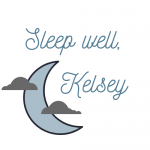
We’ve all heard it, we’ve all said it, “I just don’t have time to exercise”. I hear ya mama! It’s hard finding time to go to the bathroom solo with littles let alone get 30-60 minutes for exercise. And while I try my best to make time for self-care about twice a week to exercise I often find that incorporating exercise into activities of daily living are the exercises that stick!
So why is exercise important for health? Well most of us know the benefits of exercise for heart health, mental health, and being your best self physically, but few probably know the benefits it gives you for sleep. In a large study based out of New Zealand children with higher mean daytime activity counts were associated with a decrease in sleep latency. This basically means that kiddos that get more exercise fall asleep quicker. In adults, we also know studies show that exercise improves sleep quality, mood, and quality of life among older adults with insomnia.
Ok, so knowing exercise can help sleep improve for the whole family how do we fit it into every day? This week I sat down with Kat Williams from Pronatal Personal Training to discuss all things exercise! Kat and I met through Om Mama Co which is a collective of photography & wellness businesses in Seattle serving a community of anticipating, expecting and new moms.

Kat and I discussed how she helps her clients add in daily exercises to things they already do every day. It can be overwhelming as a new mom, or mom in general, to add more to your plate. She recommends movement mix-ins that mix movement into tasks you ALREADY do.
An example is doing ankle circles while brushing your teeth. Get the kids in on the fun, not only will it get the whole family moving joints, but it also will help with balance. All-in-all these moves can get you moving and sleeping better by the time your head hits the pillow.

References:
Nixon GM et al. Falling asleep: the determinants of sleep latency. Archives of Disease in Childhood 2009;94:686-689.
Kelly Glazer Baron, Kathryn J. Reid, and Phyllis C. Zee. Exercise to Improve Sleep in Insomnia: Exploration of the Bidirectional Effects. Journal of Clinical Sleep Medicine 2013.


